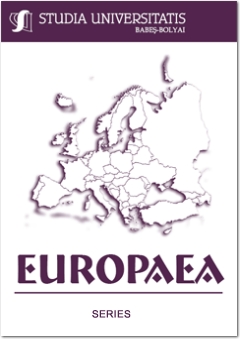EUROPEANIZATION OF REGIONAL IDENTITIES IN ROMANIA. CASE STUDY: THE LAND OF MOŢI
EUROPEANIZATION OF REGIONAL IDENTITIES IN ROMANIA. CASE STUDY: THE LAND OF MOŢI
Author(s): Diana Reianu , Radu Cristian BarnaSubject(s): Economy
Published by: Studia Universitatis Babes-Bolyai
Keywords: regional identity; Ţara Moţilor; Europeanization; values; traditions.
Summary/Abstract: Romania is known as a highly centralized country, where regional identities were strongly subject to uniformization. Cultural differences and identities have although survived even to the communist regime, often in an altered form. After 1989, in many parts of the country people began to rediscover their roots and the meaning of their local and regional identities. In the same time, the temptation and the benefits to takeover European values and behaviors were extremely high and therefore Romanians oriented their identification needs towards Europe. One of Romania’s region imbedded with a strong local identity, due to its mountainous specificity and its historical poverty, is the Ţara Moţilor (The Land of Moţi). Through this study we propose an analysis of the extent to which European values have influenced Romanian local values, in particular in the Land of Moţi, on the premise that the specific situation of this region predisposes to an orientation towards traditional values on the one hand, and to more openness and Europeanization, on the other hand. Both aspects are visible in the area, our analysis intending to clarify the reasons for one and the other orientations, in order to understand the identity issues of the area.
Journal: Studia Universitatis Babes-Bolyai - Studia Europaea
- Issue Year: 59/2014
- Issue No: 2
- Page Range: 63-78
- Page Count: 16
- Language: English

